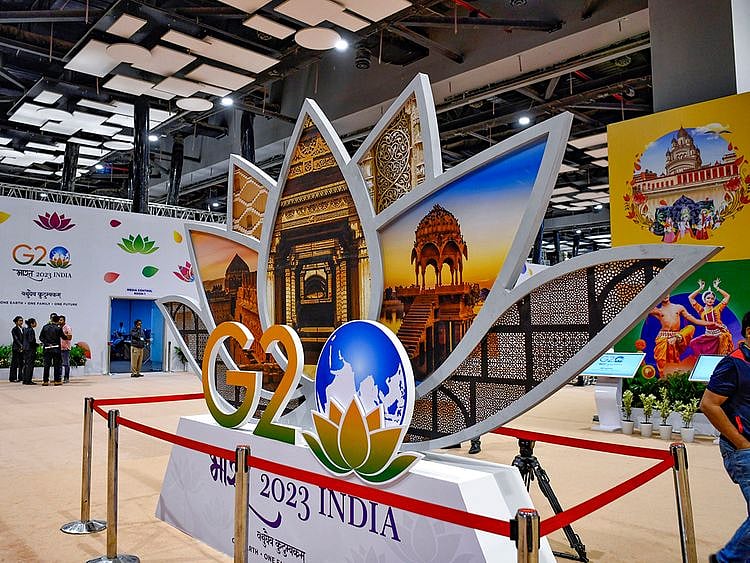18th G20 Summit: Shaping a world of diversity and harmony
Exploring the theme ‘One Earth, One Family, One Future’ amid growing global challenges

India is poised to host the 18th G20 Summit in New Delhi from Sep. 9-10, 2023, convening leaders from the world’s foremost economies to engage in substantive deliberations regarding pressing global challenges.
Under the overarching theme, “Vasudhaiva Kutumbakam,” which translates to “One Earth, One Family, One Future,” the Summit’s theme underscores the intrinsic interdependence of all life forms.
Comprising 19 nations and the European Union, the G20 collectively represents 85 per cent of the global GDP. While its initial mandate primarily addressed economic challenges, the Summit has since metamorphosed into a prominent forum for comprehensive discourse encompassing a broad spectrum of global concerns and transcending its original economic confines.
The G20 Summit wields considerable influence in shaping economic policies and charting the future trajectory of global society. An integral element of this trajectory is peace. Peace opens the door to all kinds of opportunities, and in the absence of peace, we become bereft of the foundational tenets of success.
Today, we are witnessing an alarming surge in faith-based violence worldwide, and considering this unfortunate development, incorporating religious freedom as a pivotal component within the G20’s agenda has become more important than ever. Such a progressive step might serve as the historic tipping point needed to sustain the positive momentum of human progress.
Religious Freedom: A Fundamental Right and Global Concern
The freedom of religion or belief constitutes an inherent human entitlement codified within international legal frameworks, such as the United Nations Charter, the Universal Declaration of Human Rights, and various international treaties.
Beyond being a matter of individual faith, religious freedom is a fundamental cornerstone within the underpinnings of developed societies. It endows individuals with the prerogative to exercise their religious beliefs without constraint, concurrently safeguarding the equal entitlement of others to do likewise. Nevertheless, this cherished right faces an escalating array of challenges on a global scale.
Over the past decade, there has been a conspicuous upsurge in incidents of faith-based violence. This troubling trend can be attributed to many factors, including political extremism, socioeconomic disparities, and ethno-religious tensions.
It is noteworthy that faith-based violence is no longer geographically constrained to specific regions; instead, it has extended its impact across many nations, spanning both the eastern and western hemispheres.
The Role of Religious Freedom in Sustainable Progress
Peace, harmony, and trust among people are the umbilical cord that can ensure sustainable human progress. Economic prosperity, political stability, and social cohesion flourish in environments where religious freedom is upheld.
In contrast, repression of religious liberty often fuels conflict and violence. We are entering the fourth industrial revolution; economies that will not give space to religious freedom cannot have sustainable development. History proves that those who did not adapt failed eventually.
In modern times, we have an excellent example in the UAE, where religious freedom of all has remained paramount, from building an Abrahamic family house to allowing the construction of worship places of different faiths. The land of the United Arab Emirates has become a home for people of all religions who freely work and practice their faith here without fear. It is among many other reasons for the success story of UAE in the 21st century.
Moral Imperative for the G20
Given its global influence, the G20 carries a moral imperative to address faith-based violence and promote religious freedom. Beyond its economic prowess, the G20 can set an example for the world by recognising that economic progress and the protection of human rights, including religious freedom, are intertwined.
These nations are the vanguards of civilisation, just as today we are focusing on protecting the natural habitat, just as we are focusing more and more on creating a carbon-free environment, the same way we need to focus on creating a trust-based climate where minds can freely interact and learn.
G20 as a Catalyst for Change
The G20 can play a pivotal role in combating faith-based violence and advancing religious freedom on multiple fronts:
Advocacy for Religious Freedom: The G20 can use its collective voice to advocate for the universal right to freedom of belief and condemn faith-based violence, sending a clear message to everyone that such violence will not be tolerated.
Promotion of Interfaith Dialogue: The G20 can actively support interfaith dialogue initiatives, bringing together religious leaders, governments, and civil society to promote mutual understanding, tolerance, and respect among religious communities.
Capacity Building: The G20 can facilitate capacity-building programs in countries affected by faith-based violence, assisting governments in creating policies that safeguard religious freedom and encourage social cohesion.
Conflict Avoidance: By addressing the root causes of faith-based violence, such as poverty, inequality, and discrimination, the G20 can contribute to conflict prevention and promote sustainable peace.
As we anticipate the 18th G20 Summit, the world looks at these powerful nations with hope. Their leadership can pave the way for a world where diversity is celebrated and the rights of all individuals are respected.
Raamish Siddiqui is a lawyer, author and scholar. Twitter: @raamishs
Sign up for the Daily Briefing
Get the latest news and updates straight to your inbox
Network Links
GN StoreDownload our app
© Al Nisr Publishing LLC 2025. All rights reserved.